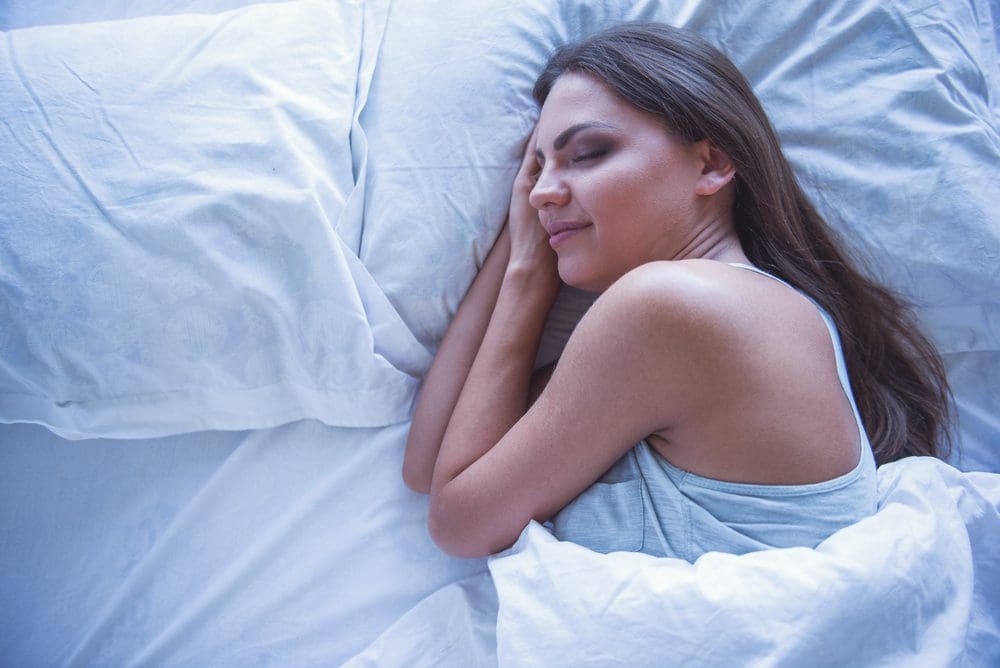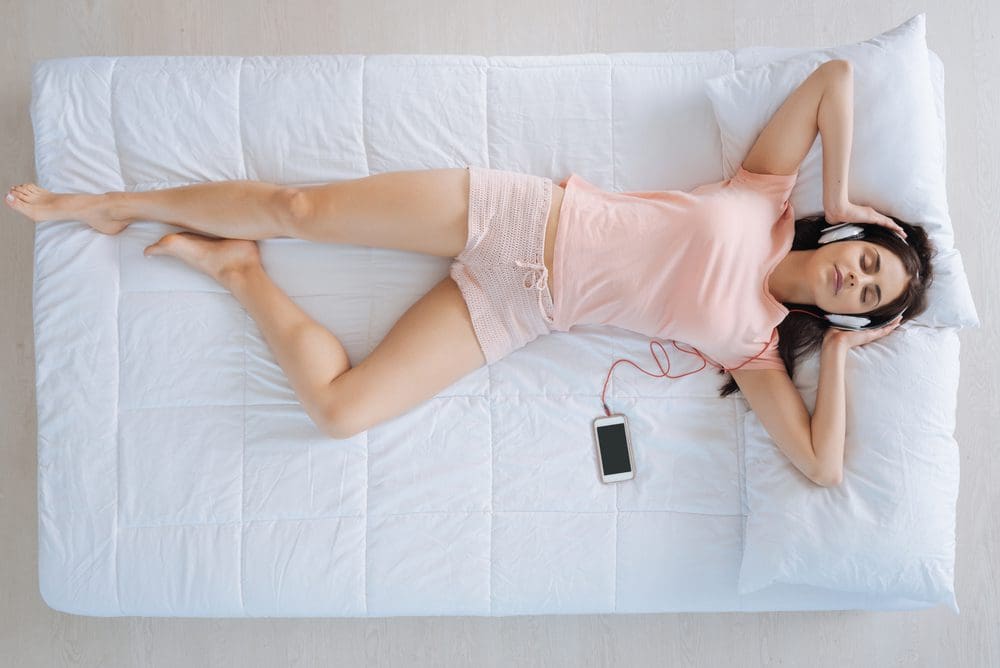Full Disclosure: Clicking on these links could mean a tiny commission for me, at no extra cost to you.
Tossing, turning, and troubled by thoughts? If anxiety is keeping you up at night, finding the right strategies for better sleep can feel like searching for a needle in a haystack. Yet, quality sleep is crucial, especially when dealing with anxiety. This guide is packed with 15 thoughtful strategies to help you ease into a restful night. Let’s tackle these sleep challenges together and find your path to a more peaceful slumber.
18 Strategies for Better Sleep
 Ah, sleep! That blissful state where our bodies and minds recharge, heal, and prepare for the challenges ahead. Yet, for many, quality sleep might as well be a myth. If you’re tossing and turning night after night, fear not! I’ve rounded up 15 game-changing strategies that might just make you say goodbye to those sheep you’ve been counting.
Ah, sleep! That blissful state where our bodies and minds recharge, heal, and prepare for the challenges ahead. Yet, for many, quality sleep might as well be a myth. If you’re tossing and turning night after night, fear not! I’ve rounded up 15 game-changing strategies that might just make you say goodbye to those sheep you’ve been counting.
- Best for Yoga → Yoga Download
- Best Blue Light Filter Glasses → Spektrum and Sleep On
- Best Blackout Curtains → Amazon
- Best Sleep Tracking Device → Muse
- Best White Noise Machine → Amazon and Yoga Sleep
- Best Anti-Snoring Devices → Z Quiet
- Best Sleep Tracking Device: Sleep On Health
- Best for Sleep Meditations → Mindfulness App
- Best for Weighted Blankets → Nuzzie
- Best for Breathwork → Inward Breathwork
- Best for Mattresses → Puffy
- Best for Drinkable Supplement → Sleep Breakthrough
1. Establish a Calming Pre-Sleep Routine
Anxiety often stems from feeling out of control, so establishing a predictable, calming bedtime routine can create a sense of security. Engage in relaxing activities such as reading, listening to soft music, or practicing gentle yoga to signal your body that it’s time to wind down.
2. Keep a Worry Journal
Before bed, take 10 minutes to jot down what’s on your mind. The act of writing can help clear your thoughts and reduce the urge to ruminate at night. Keep this journal handy to unload any anxieties that may arise.
3. Create a Comforting Environment
Your bedroom should be a sanctuary. Use soothing colors, comfortable bedding, and aromatherapy (like lavender) to make your sleep environment welcoming and anxiety-free. Consider eliminating clutter and using blackout curtains and eye masks for a more peaceful vibe. Optimal temperature for sleep is also important, so aim for air between 60 to 67 degrees Fahrenheit (15.6 to 19.4 degrees Celsius).
4. Limit Exposure to Blue Light
Blue light emitted by screens can reduce the production of melatonin, making it harder to fall asleep. Try to switch off all digital devices at least an hour before bed and use dim lights to help your mind relax. If you can’t turn it off, opt for some wear blue light blocking glasses.
5. Practice Deep Breathing or Meditation
Techniques like deep breathing, meditation, or guided imagery can be powerful tools for calming the mind before bedtime. Apps like Calm or Headspace offer guided sessions that can help ease anxiety. Plus, you can get a 14-day free trial here!
6. Avoid Stimulants
Caffeine and nicotine are stimulants that can worsen anxiety and disrupt sleep patterns. Try to avoid these substances in the late afternoon and evening.
7. Exercise Regularly, But Not Before Bed
Regular exercise can significantly reduce anxiety and improve sleep quality. However, try to schedule workouts at least a few hours before bedtime so you’re not too energized to sleep.
8. Establish a Sleep Schedule
Going to bed and waking up at the same time every day, even on weekends, can help regulate your body’s clock and reduce anxiety about sleep.
9. Use Progressive Muscle Relaxation
This technique involves tensing and then relaxing different muscle groups in the body, which can promote overall relaxation and make falling asleep easier.
10. Limit Naps
While napping can be tempting, especially after a poor night’s sleep, try to limit naps to early in the afternoon and make them no longer than 20 minutes to avoid nighttime sleep disruptions.
11. Manage Environmental Noise
If noise is a trigger for your anxiety, consider using a white noise machine or earplugs to block out disturbing sounds.
12. Adjust Your Diet
Avoid heavy meals, spicy food, and excessive fluids before bedtime as they can cause discomfort and disrupt sleep. Opt for a light snack if you’re hungry.
13. Consider Cognitive Behavioral Therapy (CBT)
CBT is a form of therapy that can help you manage your anxiety by changing negative thought patterns. It can be particularly effective for anxiety-related insomnia.
14. Review Your Medications
Some medications can contribute to insomnia. Talk with your healthcare provider about the side effects of any drugs you’re taking.
15. Seek Professional Help
If anxiety and insomnia are severely impacting your life, it may be time to seek help from a mental health professional who specializes in anxiety disorders.
16. Choose the Right Mattress and Pillow
Don’t underestimate the importance of a comfortable mattress and pillow. The right mattress should support your body in a neutral position, where your spine has a natural curvature, and your head, shoulders, hips, and heels are aligned.
17. Wind Down Your Mind
Engaging your mind in calming, non-stimulating activities can help you transition to sleep. This might involve meditation, deep breathing exercises, or visualization techniques that help you relax and focus on your breath or a peaceful scene.
18. Turn Your Clock Around
Frequently checking the time during the night can wake you up (particularly if you wake up anxious about the time). Turn your clock’s face away from you.
Conclusion
While anxiety can make it difficult to get restful sleep, employing one or more of these strategies can help you find some relief. Remember, the key is consistency and patience. With the right approach, you can enjoy a better sleep, which in turn, can help manage your anxiety more effectively.









